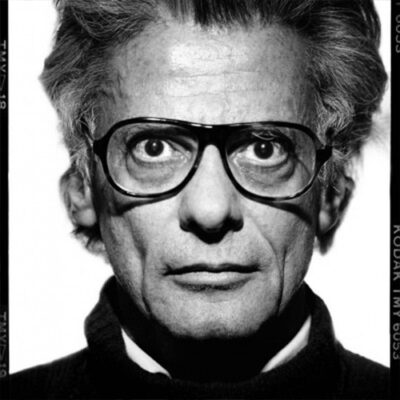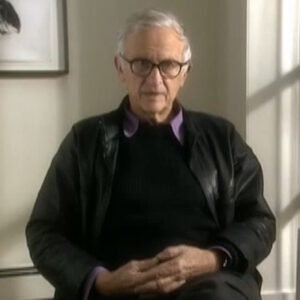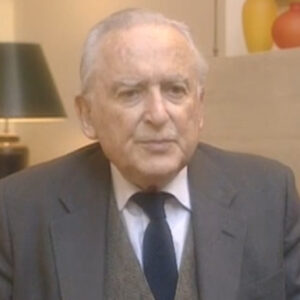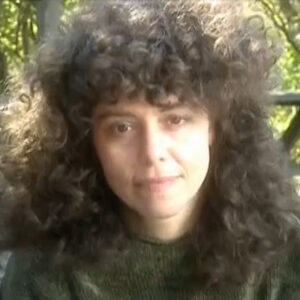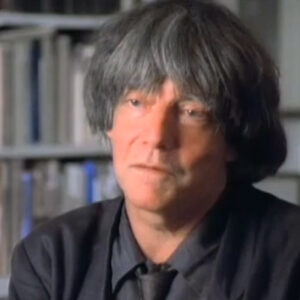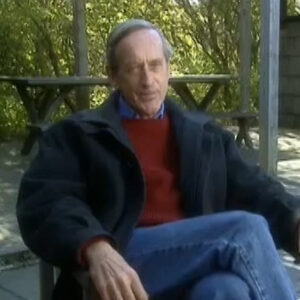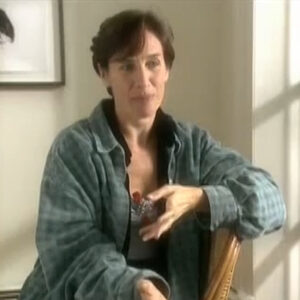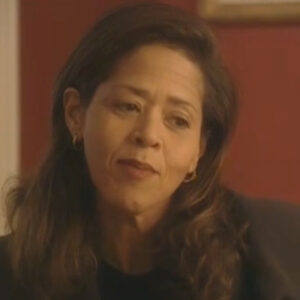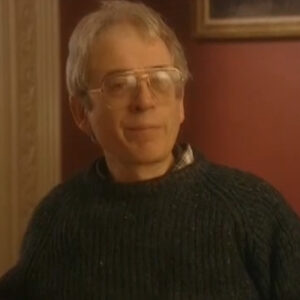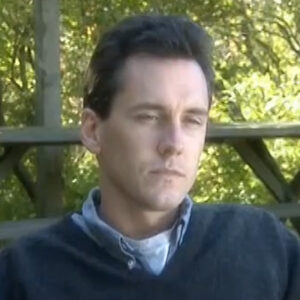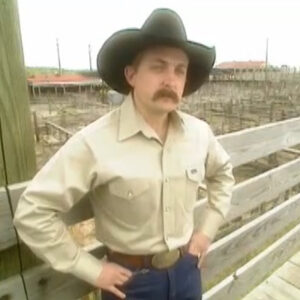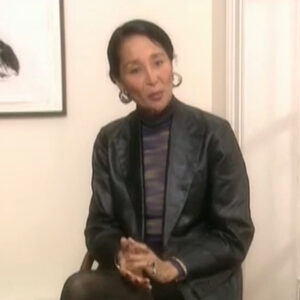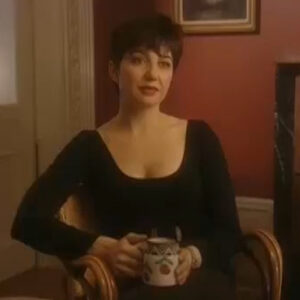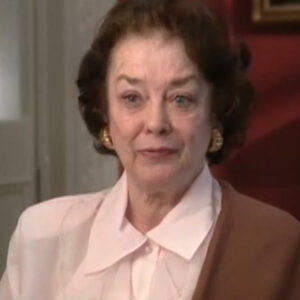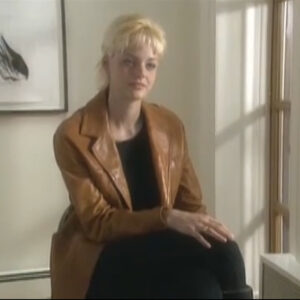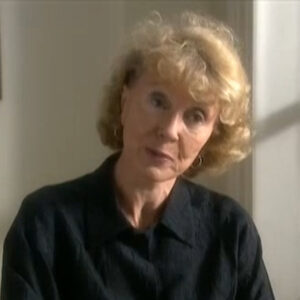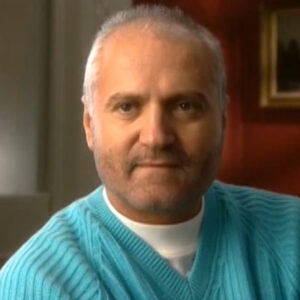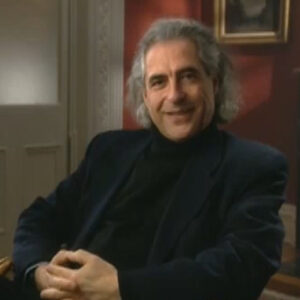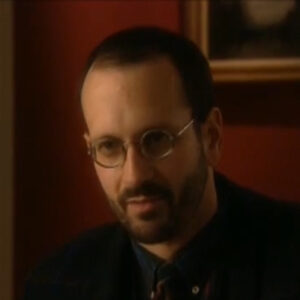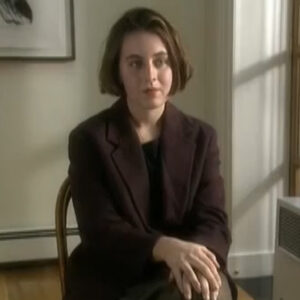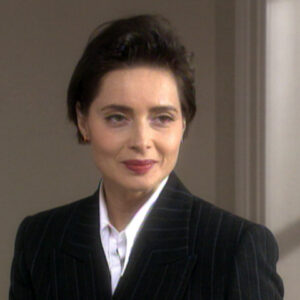Speaker Well, I can’t remember a time in my life when the evidence weren’t a part of it, particularly in my very young days. They were just part of the scene. And their son, John Johnny, was pretty much exactly my age. And so we just went along parallel and were pals and competitors and and all that combination of things that kids the same age can be, especially if one’s a girl, one’s a boy. Because he was a boy, I felt I had to work extra hard to compete this to keep up with him. You could always climb the tree higher than I could. And he was always somehow reading more or or knowing more about rock and roll. He was always a little bit ahead of me, so I had to work to keep up with John.
Speaker And would your families take vacations together, hang out, dinner together? You take pictures if you travel, that is just.
Speaker We we took vacations together a couple of times. There was one really fabulous vacation in Jamaica where we all share the house. And I was about six. I suppose I was very young, but I remember it being so much fun. And I’ve had a lot of fun with Johnny back then, although he did persuade me that we should poison my little brother, Alexander. And we got in a lot of trouble. We made a concoction of Coca-Cola and suntan oil and perfume and anything we could find. And then let it sit in a dark cabinet for a few hours. And then when Johnny determined it was good and ready, he removed it and tried to talk my little brother into drinking it. And my brother noticed that it smelled very peculiar for Coca-Cola and said, no, I don’t think I want to drink this. And then somehow we got caught and then we were severely punished and sent to our separate rooms. And I remember lying on the bed and staring at the fan, going around and around and thinking about my fate. But aside from that, we had. It was pretty much a wonderful vacation. There was a lot of swimming and fooling around and laughing. And I don’t particularly remember the camera being out all the time. But I know that a lot of wonderful pictures came out of that vacation.
Speaker Six year old.
Speaker Dick was fun. Dick was a grown up who was like a kid. And it was always great to have him around. You always knew there would be plenty of laughs. Dick was there. He was goofy and giggly and and always found things to do or to talk about that that were cause for merriment. So I was always very glad when the evidence were coming.
Speaker If you just begin.
Speaker Well, I remember the summer of 74 very well, because I had just graduated from college and was home and around. And I also particularly remember that summer because my mother had just had an operation for cancer. So she was recovering. And Dick was also recovering from an operation he had had for his pericarditis or whatever. The thing was that he had had that he had a heart problem and it had surgery. So he came out to Fairfield to recuperate with my mother and they had so much fun. It was just the two of them. My father was away. He was on tour or something, working, conducting in Europe or something. So it was just the two of them and the help in the house. And my sister and me and, you know, friends came and went. But basically that was the core group and the weather was great and the days were lazy and they made each other laugh. I think that was particularly therapeutic aspect of the time out there, that they got the giggles all the time. And I’m sure that helped them get better, faster than anything else did. And they made each other feel a lot better. He did he took a lot of pictures, we teased him because he arrived with all these cameras that had been preset by his assistants because it had been so long since it handled a camera without assistance that you didn’t really know how they worked. So everything had labels on it and little arrows and things so that all he would have to do was point and shoot, basically. We teased him a lot. He just loads of pictures of all of us and everything and, you know, but the outdoors and the indoors and in nature. And my sister and her horse and the dogs and and, you know, the the cook and the housekeeper and everything. And then he assembled it all in a little book as a thank you present.
Speaker And we love to look at this book because it brings back that time and the lazy days of that summer better than anything does. And also, it’s very poignant for us to look at it, because my mother died four years later of a cancer that was probably related to the one that she’d had that summer. So it was a reminder of a time when things weren’t really bad yet, although she had just recovered from this pretty serious operation. So there was that sense of, you know, the danger had been passed and she was getting better and everything was as it had been. So it was a moment that was caught by Dick that has great personal meaning to our family.
Speaker Well.
Speaker Dickert was a friend of everybody in my family. He was a very good friend of my father’s. I think he may have known my father before he knew my mother. Then he was a very good friend of my father’s sister, Shirley Bernstine, and they were best pals for years. And then it was later on in his life that he became best pals with my mother. So he has he has all these different real friendships with people in my family. But the one with my mother was very special. I don’t really know what it was all about. It was very private and very intimate. And the fact that they went through illness together brought them very close. I think they traveled together after that summer. Later on and and had a lot of fun together, a lot of special times. And when my mother died, I know that Dick was devastated as we’re real.
Speaker But I think it was particularly devastating for him as a friend because of that very late special friendship that they created.
Speaker Just the way they related with your father.
Speaker Well, Vick’s relationship, his friendship with my father, I perceived as more of a family thing. You know, we were all together a dick with Evy, his wife and my father, with my mother and all the kids. And so I didn’t have so much of an understanding of what his particular friendship with my father was based on, except that, you know, everybody was all together having a great time. I think that they had a lot in common. But I don’t really know myself what that was all about. But these of you, my mother, I you know, I was more adult when I observed them together.
Speaker And I could see that they just brought each other so much joy and so much laughter and warmth and that I could see more as an adult.
Speaker Oh, it’s about a special photograph. I hope you can get your early to tell about it, but I’ll tell it just in case she doesn’t. There were many photographs that Dick took of that time that summer in 1974 when he was out in Connecticut with us.
Speaker But when he saw them all and they were all, you know, from these various cameras, some of which were regular shoot, first developed later cameras. And he also had a Polaroid. And one of the Polaroids he proclaimed was the greatest photograph that he had ever taken. And this was a Polaroid of him and my mother in the swimming pool with just their heads sticking out. It looks like, you know, the last scene of a Beckett play or something. And he thought that was really the greatest shot of the mall and put it at the end of the little book that he assembled until Shirley pointed out to Dick that he was in the picture. And how the hell could he have taken it anyway? And it had not occurred to Dick until that moment that you’re right. You didn’t take that picture, did he? Surely took it.
Speaker Dickens spoken a great deal to us.
Speaker What you know, that doesn’t get into the picture or what you want to say that you don’t want to say. It’s more difficult than anything.
Speaker Get to what you know about your father.
Speaker No, no. Your.
Speaker You know, I don’t know that many of the pictures he’s taken, the the picture of my father, the Dick Tookes that I love the most, is the one of my father with Alexander, my brother on his shoulders. I love that picture that came from that trip to Jamaica that we all took together. I think he took that picture in Martha’s Vineyard in the summer. And Alexander had just received a haircut from my mother. So he looks very vulnerable the way little boys do when their hair is very short and you can see the nature of their necks. And my father also just gotten a haircut. So he looks kind of trimmed up and but very relaxed. That’s the thing that’s wonderful about that picture, is that my father looks so relaxed and so like the daddy he was to us. There’s nothing glamorous about it. It’s just a real backyard, kind of a picture. But of course, the picture itself has that wonderful grainy quality that many of Dick’s Pictures have where you see every detail, every pockmark, nothing is left out. And even so, everybody looks great. I don’t know how he does that.
Speaker Let’s see, and it must have been 1967 or so it was. I was 14. And Shirley had this great idea that she hatched with Dick that she would bring us three kids, Alexander, Nina and myself, into Dick’s studio to have him photograph us. And then Dick would give the photographs to my parents for Christmas. And so we all first we went to Times Square and bought a lot of buttons and silly hats that said things and all sorts of silly props. And then we went over to Dick’s studio and spent the whole day there being photographed by Dick wearing all these various things that we had picked up in Times Square.
Speaker And he had all of, you know, Beatles music and other music from those great days of music playing on the stereo while we jumped around and we thought we’d gone to heaven and become the coolest people up there in heaven. It was great. It was so glamorous and exciting and fun. And of course, Dick kept kept it fun always. And the music made it seem like a big party. It was really great. And the pictures came out wonderfully. We still have them all over the house. Well, in those days, the music was so great, all he had to do was put the music on and then we danced. It was as simple as that. And, you know, three kids and music, all you have to do is leave them. Then they’ll jump around by themselves. The harder thing would have been to tell us to sit still. That would have been hard.
Speaker I have no idea.
Speaker Oh, yeah, yeah, that’s that’s not how it went. A few years ago, Dick had Alexander, Nina and me and my husband David over the dinner at his studio. And as a surprise, he had taken one picture of each of us from that session in 1967 and blown them up to wall size, unimaginably huge. And he had them tacked up all over his studio just as a fun surprise. And then he said, you want to take them in in this incredibly offhand way. For us, it was. It was literally and figuratively a very big thing that he would give these things to us. And the only person who has tall enough walls to have them up is Nina because she lives in a loft. So Nina has all three pictures mounted beautifully on the walls of her loft downtown.
Speaker It meant a lot to us that he would have done such a thing. We were quite overcome.
Speaker Just your fathers matter. And what?
Speaker Well, I I imagine the thing that must have been hard for Dick when he was taking pictures of my father was to capture the essence of who he was just in one photograph because he had. He was. His face was so animated. There was so much going on in it all the time, especially when he was conducting. But also just when he was talking, so much stuff was going on. That that you could never capture enough of it in just one photo. I think you’d have to make a lot of choices every time about well, I guess I’ll just try and capture this thing or I’ll just go after that particular aspect. And then, you know, just I suppose if you could put all the pictures together, you might eventually have captured something of the personality or the character of my father. But I’m sure that was the big challenge for Dick was to try and get it all in one shot. I don’t know whether he felt like he ever achieved that.
Speaker I don’t know.
Speaker That’s it’s funny that the pictures that I know of, that of my father that Dick took are all the ones that were taken in family situations when we were all just around.
Speaker And I don’t personally recall whether you ever photographed my father professionally. You may have, but I really don’t know. It’s not what I what I know personally. Did it you know, have you seen pictures of. I really don’t know. And that’s you would know better than I at this point.
Speaker Your father animated throughout the day. It was.
Speaker Well, he was to say that he was intense all the time, which he was makes it sound like he was very serious, sensitive in your face all the time. But he wasn’t that way at all. He was full of lightness and funniness and levity and and jokes. He could be incredibly gossamer light when he was in the mood to be. So he wasn’t just Beethoven union all the time, although he could certainly seem that way when he was conducting Beethoven.
Speaker So that was what was hard to capture about my father, was that he did have all these different ways of being and and very often because he was so intense, people neglect to evoke what was the light touch about him. But all those pictures that that Dick took at home did manage very often to capture the likeness.
Speaker Character of your father, when you’re conducting or at home or playful, it intense you.
Speaker Can you say that again? I don’t to use a generation name so much nicer, just. Well, I’ll try.
Speaker Most people know Leonard Bernstine as the conductor and composer and the pianist and the teacher on television. Not everybody knows him. In fact, very few people besides myself know him as a father and a family man. But to us, where he mostly was was daddy at home tumbling around with us on the floor and playing word games and laughing and eating and just being silly and listening to pop music on the radio. And that’s the daddy we know. And that’s the daddy that Dick was mostly taking pictures of.

